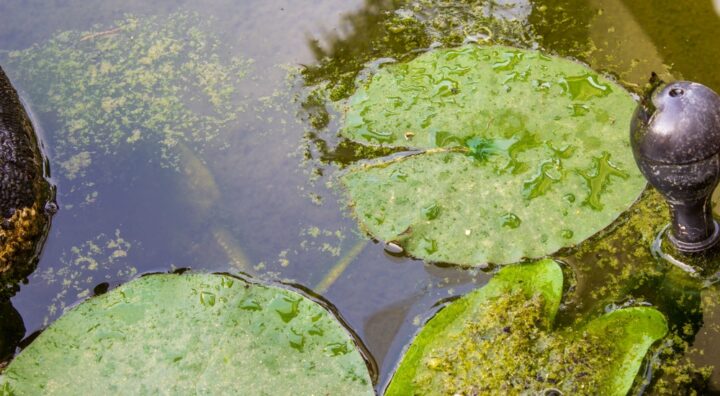
Ponds are not just picturesque features of our natural landscapes; they serve as vital ecosystems supporting a diverse range of flora and fauna.
These aquatic habitats are teeming with life and play a crucial role in maintaining the delicate balance of our environment. Understanding the importance of pond ecosystems and taking measures to preserve their health is paramount. In this blog, we will delve into the significance of cleanliness in pond maintenance, the consequences of neglected care, the impact on aquatic and plant life, the environmental effects, the benefits of regular cleaning, and practical tips for effective pond maintenance.
Role of Cleanliness
Cleanliness is the cornerstone of pond care. A clean pond is essential for sustaining the delicate equilibrium of its inhabitants. When a pond is free from excessive debris, pollutants, and contaminants, it fosters an environment that promotes the flourishing of diverse plant and animal species. Additionally, a clean pond ensures optimal water quality, which is vital for the overall well-being of the ecosystem.
Neglected Care Consequences
Failing to provide proper pond care can have detrimental consequences. A neglected pond becomes a breeding ground for various issues that can lead to a decline in its health and biodiversity. Accumulated debris, such as fallen leaves, twigs, and decaying organic matter, can decompose and release harmful substances into the water. This, in turn, creates an imbalance in the nutrient levels and disrupts the natural cycles within the pond. Neglected ponds are also more susceptible to the growth of algae and harmful bacteria, which further degrade the water quality and negatively impact the ecosystem.
Impacts on Aquatic and Plant Life
Uncleanliness in a pond can significantly affect the organisms residing within it. Aquatic life, including fish, amphibians, and invertebrates, heavily rely on a well-maintained habitat for survival. Poor water quality resulting from accumulated debris and pollutants can lead to oxygen depletion, making it difficult for aquatic organisms to respire properly. Additionally, excessive algae growth caused by nutrient imbalance can block sunlight, hindering the photosynthetic activities of aquatic plants and depriving them of essential nutrients. Consequently, the decline in plant life reduces the availability of shelter and food sources for the entire pond community, disrupting the ecological balance.
Environmental Effects
The effects of an unclean pond are not limited to its immediate inhabitants; they extend to the surrounding environment as well. Overflow of pollutants and excessive nutrients from neglected ponds can contaminate nearby water sources such as rivers and streams. This contamination poses a threat to the broader ecosystem, affecting not only aquatic organisms but also terrestrial animals and human populations that depend on these water bodies. Moreover, the aesthetic value of the environment is compromised when unsightly algae blooms or foul odors emanate from neglected ponds, detracting from the overall beauty of the surrounding area.
Regular Cleaning Benefits
Maintaining a regular regimen for pond care brings about numerous benefits. Firstly, it helps to prevent the accumulation of debris, minimising the risk of nutrient imbalances and the growth of harmful bacteria and algae. By ensuring proper water quality, regular cleaning supports the optimal growth of aquatic plants, contributing to a visually appealing and thriving ecosystem. It also enhances the habitat conditions for fish and other aquatic organisms, fostering their health and overall well-being. Moreover, a clean and well-maintained pond elevates the aesthetics of its surroundings, creating a serene and enjoyable environment for both humans and wildlife.
Practical Cleaning Tips
To effectively clean and maintain a pond, several practical tips can be followed. First and foremost, removing debris such as leaves, twigs, and excess vegetation regularly is essential. Using a pond net or skimmer makes this task more efficient. Additionally, installing a garden pond filter or aerator aids in improving water circulation and oxygenation, promoting a healthier environment. It is advisable to monitor and test the water quality regularly, adjusting nutrient levels as necessary. If algae growth becomes problematic, incorporating beneficial aquatic plants or considering the use of environmentally friendly algaecides can be effective measures. Lastly, establishing a routine cleaning schedule and incorporating these practices into regular pond maintenance will ensure a clean and vibrant ecosystem.
Recognising the importance of pond ecosystems and prioritising cleanliness in pond maintenance is crucial for their preservation. Pond care not only sustains the health and biodiversity of the pond but also has positive implications for the surrounding environment. By understanding the consequences of neglected care, the impacts on aquatic and plant life, and the broader environmental effects, we can appreciate the necessity of regular cleaning. By following practical cleaning tips and maintaining a consistent cleaning regimen, we can contribute to the longevity and vibrancy of these valuable natural habitats.
